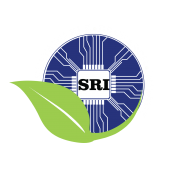The Synergy of Sustainability, Nature, Climate, and Genomics: Paving the Way to a Resilient Future
In the pursuit of a sustainable and resilient future, the convergence of genomics, nature, and climate science is proving to be a transformative force. As we stand at the intersection of technology and environmental stewardship, the marriage of genomics with sustainability initiatives holds the key to unlocking innovative solutions for the challenges we face in preserving our planet.
- Genomics and Biodiversity Conservation:
The intricate dance of genes within each living organism holds the blueprint for the biodiversity that sustains our ecosystems. Genomic research is playing a pivotal role in understanding and conserving the rich tapestry of life on Earth. By studying the genomes of endangered species, scientists can develop targeted conservation strategies to preserve genetic diversity and ensure the survival of vulnerable ecosystems.
- Sustainable Agriculture through Precision Genomics:
The future of agriculture lies in sustainability, and genomics is paving the way for precision farming practices. By analyzing the genetic makeup of crops, researchers can develop resilient varieties that are resistant to pests, diseases, and adverse climate conditions. This not only enhances crop yields but also reduces the need for harmful pesticides and fosters more sustainable agricultural practices.
- Climate-Resilient Crops:
As climate change poses unprecedented challenges to global food security, genomics offers a ray of hope. By identifying and manipulating genes associated with stress tolerance, researchers can develop crops that thrive in changing climates. This climate-resilient agriculture is crucial for ensuring a stable food supply in the face of unpredictable weather patterns.
- Harnessing Nature’s Solutions through Biotechnology:
Nature has been a master innovator for millions of years, and now, with the aid of genomics and biotechnology, we can leverage its solutions to address environmental challenges. From developing biodegradable materials inspired by nature’s design to engineering microorganisms that can break down pollutants, genomics is unlocking the potential for sustainable solutions rooted in the natural world.
- Personalized Environmental Health:
Understanding the interplay between genetics and environmental factors is essential for promoting human health in the context of climate change. Genomic research allows us to identify genetic predispositions to environmental sensitivities and tailor health interventions accordingly. This personalized approach to environmental health can lead to more effective strategies for mitigating the impact of environmental factors on individuals.
In the collaborative dance of genomics, sustainability, nature, and climate science, we find the harmonious chords of a resilient future. As we continue to unravel the genetic mysteries of the natural world, we gain the knowledge needed to safeguard our planet for generations to come. Stay tuned as we explore the ongoing journey towards a sustainable, nature-inspired future, where genomics serves as a guiding compass for environmental stewardship.
